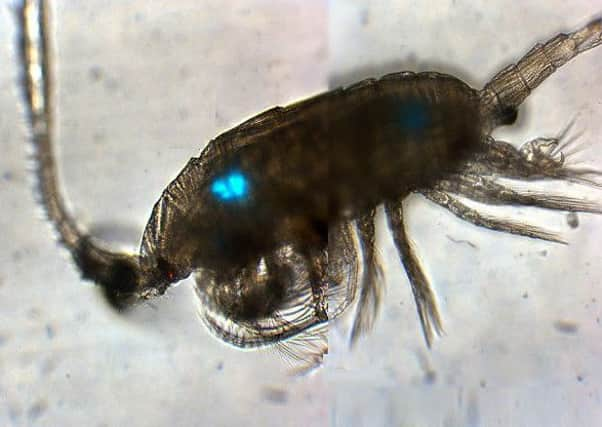MPs call for national ban on microbeads in cosmetics


The call comes in response to a new report from the UK parliament’s Environmental Audit Committee (EAC).
Microplastic pollution comes from the fragmentation of larger pieces of plastic waste, small synthetic fibres from clothing and from microbeads used in products such as exfoliating scrubs, toothpaste and shower gels.
Advertisement
Hide AdAdvertisement
Hide AdIt is estimated that 86 tonnes of microplastics are released into the environment in the UK every year through facial exfoliants alone.
Most large cosmetics companies have made voluntary commitments to phase out microbeads by 2020, but committee members believe a legal ban should be put in place by the end of 2017.
“Trillions of tiny pieces of plastic are accumulating in the world’s oceans, lakes and estuaries, harming marine life and entering the food chain,” said EAC chair Mary Creagh.
“We need a full legal ban, preferably at an international level as pollution does not respect borders.
“If this isn’t possible after our vote to leave the EU, then the government should introduce a national ban.
“The best way to reduce this pollution is to prevent plastic being flushed into the sea in the first place.”
Plastic debris is rapidly accumulating in the world’s oceans, at the rate of eight million tonnes every year.
Much is made up of large items such as fishing gear, bottles and plastic bags, but the dominant type is microplastics – up to 51 trillion particles in oceans worldwide.
Advertisement
Hide AdAdvertisement
Hide AdThere has been little research into the impacts of microplastics on marine life, human health or the economy.
The University of Exeter’s Professor Tamara Galloway, a marine pollution expert who gave evidence to the EAC, said a ban would be a “welcome step in the right direction”.
“Our research has shown that many marine animals ingest microbeads, mistaking them for food,” she said.
“They can become lodged in the animal’s gut and prevent them from eating nutritious food. They can also pass chemicals into the animal’s tissues.
“When these animals are eaten, the microplastics and the chemicals they contain can be passed through the food chain too. It has been estimated that an average plate of oysters could contain up to 50 plastic particles.
“We don’t yet have any evidence for the harm that this might cause, but most people would probably prefer not to be eating microbeads with their food.”